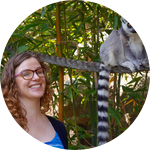About This Project
Low activity levels in captive animals are common because they don't have to search for food, unlike their wild counterparts. This may result in lower visitor interest in the animals and contribute to reduced interest in conservation efforts. We will address this issue by building and installing 'smart feeders' in the lemur enclosure at Oakland Zoo and studying how changes in food availability affect lemur activity levels and in turn how changes in activity affects zoo visitor interest.
Ask the Scientists
Join The DiscussionWhat is the context of this research?
Oakland Zoo's focus on maintaining and enhancing the psychological well-being of their animals means they are better able to address the issue of reduced animal activity. The keepers already provide their animals with the opportunity to make choices, engage in species-appropriate behaviors, and enhance their welfare through an extensive enrichment program. Our smart feeders will further these goals by allowing enrichment to occur throughout the day without human intervention, and in exhibit locations that would be difficult for keepers to access with lemurs present.
What is the significance of this project?
In the wild, food is unpredictable so animals must move constantly in search of it. In zoos, enrichment often aims to increase unpredictability but keepers are usually involved in deploying the enrichment. Because our smart feeders are automated, they will simulate a more natural environment by increasing unpredictability of when food is available while reducing human interaction with the animals. After the installation of the smart feeders, we expect visitors to show higher interest in the lemurs by staying at the exhibit longer to watch them interact with the devices.
Our smart feeders will enhance the well-being of the lemurs and potentially stimulate interest in lemurs and lemur conservation on the part of Oakland Zoo visitors.
What are the goals of the project?
With the requested funding, the SSUPER lab will be able to:
- Buy materials for enrichment devices
- Build enrichment devices
- Assess behavior of lemurs and stay-time of zoo visitors before enrichment and throughout the enrichment phases
- Publish findings in a peer-reviewed journal, like Zoo Biology
- Present findings at Oakland Zoo in Summer 2016
- Present findings at the 2016 Association of Zoos and Aquariums Annual Conference
Budget
The mission of the Sonoma State University Primate Ethology Research Lab is to collaborate with zoos to better understand the behavior of their animals and enhance their welfare while providing affordable and accessible research opportunities to Sonoma State University students.
We have already built the smart feeder prototype (see video), so we know exactly how much each device will cost. We need to build eight devices from scratch and each device requires a frame and plastic cover to ensure that the lemurs do not access the internal components. The Arduino, servo, and battery pack for each device is necessary to ensure automated delivery of food throughout the day without human intervention.
Your support of our project will help us further enrich the lives of the lemurs at Oakland Zoo and provide valuable research experience for Sonoma State undergraduate students assisting with the project.
Your financial support directly benefits the Sonoma State Primate Ethology Research Lab.
Meet the Team
Affiliates
Affiliates
Team Bio
Penelope joined the SSU Primate Ethology Research Lab as an MS student in Biology in August 2014. She received her BS in Zoology & Marine Biology from Humboldt State. Her experience comes from interning in animal care at Oakland Zoo and years of working in veterinary hospitals. Her interests include captive animal welfare and environmental enrichment.
Karin received her MA and PhD in anthropology from UC Davis. She is currently professor of anthropology at Sonoma State University and director of the Sonoma State University Primate Ethology Research Lab.
For the past 15 years, Darren has built and managed animal care and welfare programs for a variety of facilities in the US and abroad. He received an MS in Collections Management & Zoological Administration from George Mason University, BS from UC Davis in Wildlife & Fish Conservation Biology, and three degrees in exotic animal training & management from Moorpark College. He is currently a Zoological Manager at Oakland Zoo and also oversees the Zoo's research and animal care volunteer programs.
David Jaffe has over 20 years' experience as a zookeeper working at the San Diego Wild Animal Park, Marine World, and the San Francisco Zoo. He is also an amateur woodworker and maker and he has successfully combined these skills with his understanding of captive animals to design and build numerous animal-related devices, including a blood-draw sleeve for chimpanzees and penguin nest boxes. He designed and built the smart feeder prototype.
Penelope J. Wilson
Penelope Wilson joined the SSUPER Lab at Sonoma State University as a Biology M.S. student in August 2014. She received her B.S. in Zoology and Marine Biology from Humboldt State University in 2013. Penelope's experience comes from interning in animal care at Oakland Zoo, and years of working in veterinary hospitals. Her interests include captive animal welfare and environmental enrichment. Her thesis focuses on how temporal predictability of environmental enrichment affects the behavior and enclosure use of blue-eyed black and ring-tailed lemurs at the Oakland Zoo and how these changes affect zoo patron's interest in the lemurs.
Karin E. Jaffe
Karin Jaffe received her BA in anthropology from UC San Diego and her M.A. and Ph.D. in anthropology from UC Davis. She has been studying captive and wild primates for over 25 years, including sub-specific sociality differences in orangutans at the San Diego Zoo, behavior of mona monkeys on the island of Grenada, and vervet and patas monkey anti-predator behavior in Laikipia, Kenya. She is Professor of Anthropology at Sonoma State University, Research Affiliate at Oakland Zoo, and Director of the Sonoma State University Primate Ethology Research Lab
Darren Minier
Darren Minier has built and managed animal care, behavior management, and welfare programs with a large range of taxa - both captive and free-ranging - in zoos, marine parks, sanctuaries, animal-assisted therapy, and biomedical research facilities both nationally and abroad. He received a Master’s degree from George Mason University and AZA's Zoo and Aquarium Leadership Program, B.S. from the University of California, Davis in Wildlife and Fish Conservation Biology focusing in Behavioral Ecology, and three degrees from the Exotic Animal Training and Management Program at Moorpark College. Mr. Minier is the Assistant Director of Animal Care, Conservation, and Research at the Oakland Zoo, which includes overseeing the Welfare Research program. He is currently working with sanctuaries, zoos, and policy activists to form the Bear Education and Advocacy Resource (BEAR) Alliance, and consults nationwide on the care and welfare of bears in need. He is a board member for the California Wolf Center, and sits on the International Primatological Society's Captive Care Committee, the Animal Behavior Society's Animal Care Committee, and is an animal management and well-being reviewer for the Institute of Museum and Library Services, Journal of Animal Welfare, and Zoo Biology.
Press and Media
Read Oakland Zoo's Press Release:
Oakland Zoo and Sonoma State University Collaborate to Enhance the Lives of Lemurs
Listen to Darren Minier's interview about the project:
KCBS 106.9FM interview with Darren Minier (aired 8/30/15)
Read this BlogSpot post by Prancing Papio:
The Ring-Tailed Lemurs at Oakland Zoo Need You: Help Fund the Smart Feeders Project
Listen to Penelope, Darren, and Karin interviewed about the Lemur Smart Feeder project:
Additional Information
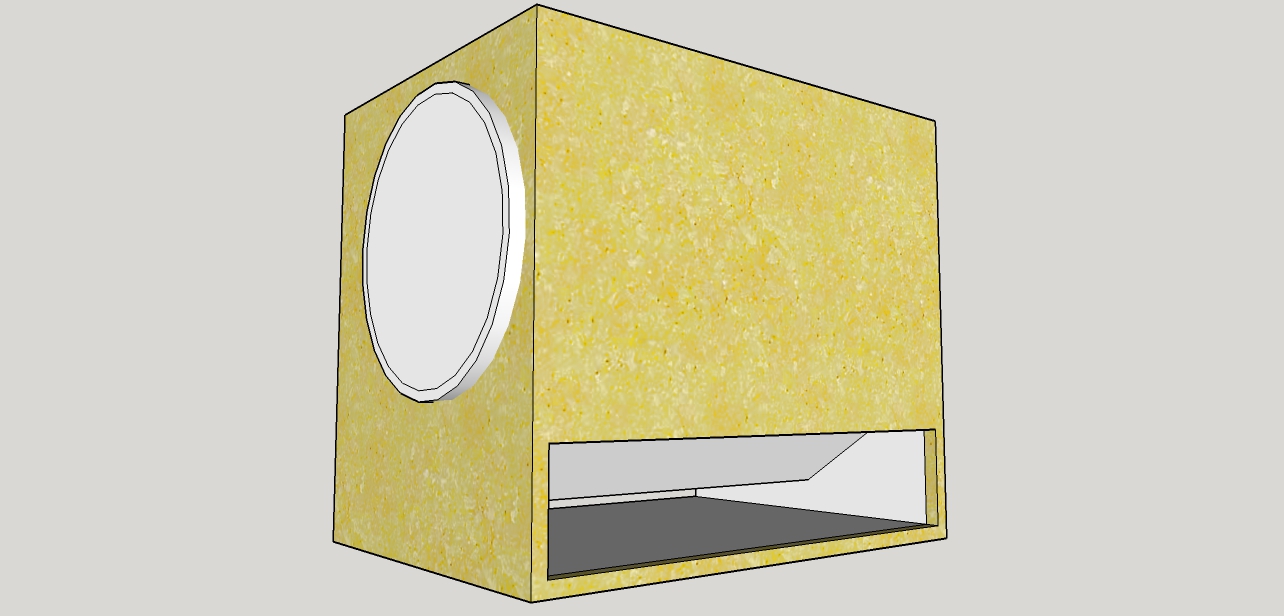
1. Front view of the enrichment device.
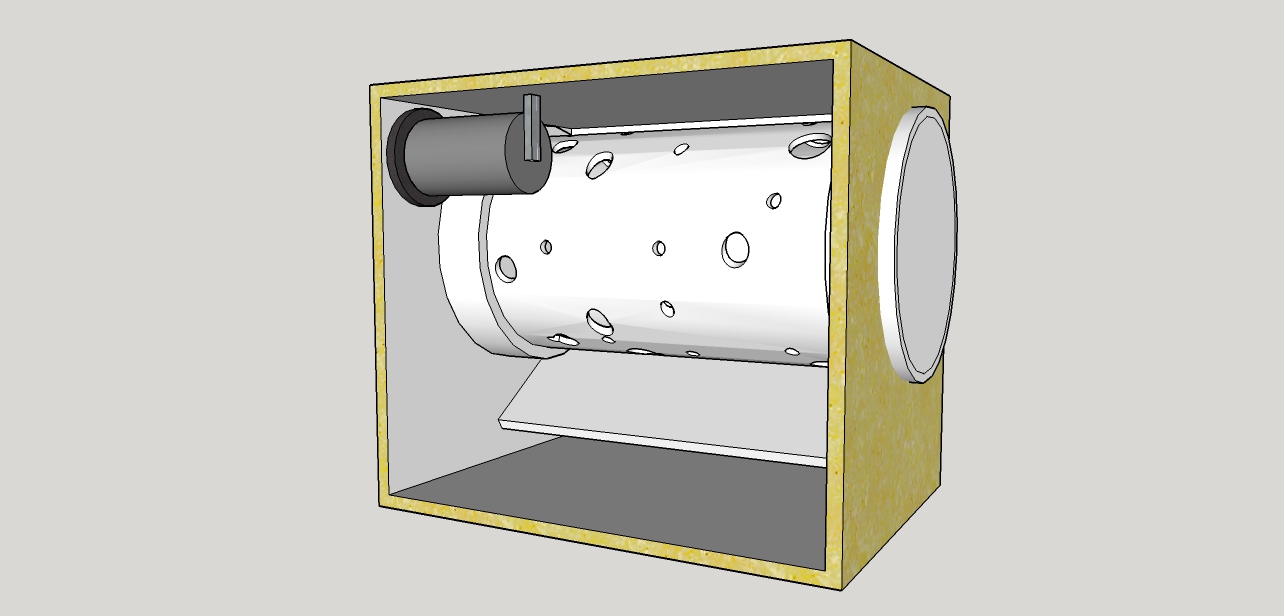
2. Internal view of enrichment device. The servo motor spins the PVC pipe attached to it. The spinning of the PVC pipe will allow food to drop to the trough area, where the lemurs will have access. The servo will control how often the PVC pipe spins, which is how we will alter the predictability of reward.
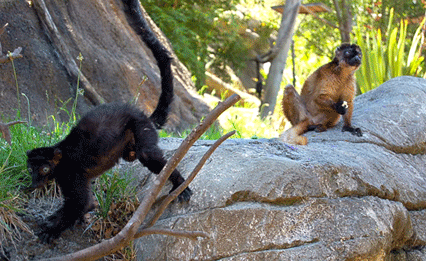
3. The blue-eyed black lemurs of Oakland Zoo.
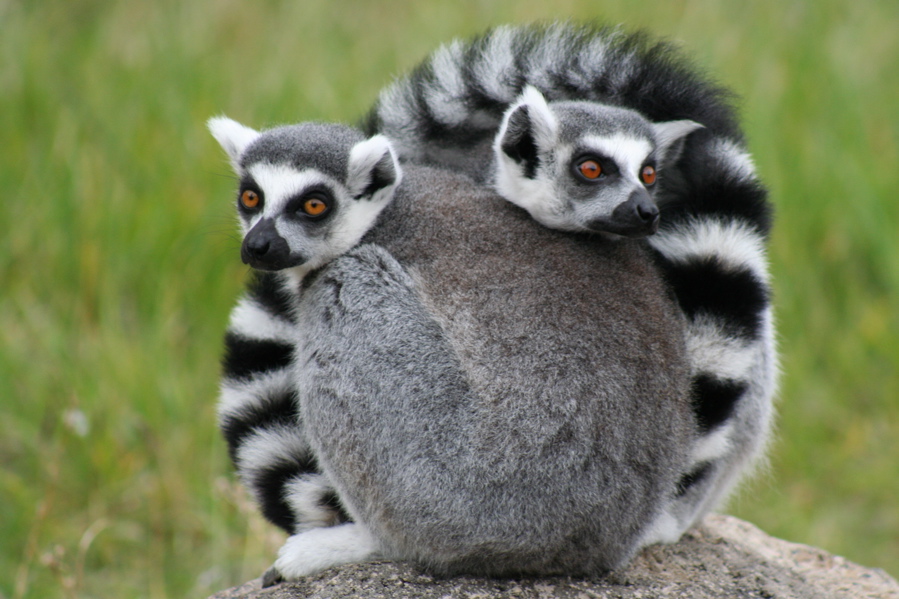
4. There are four ring-tailed lemurs at Oakland Zoo; three females and one male.
Project Backers
- 57Backers
- 100%Funded
- $2,584Total Donations
- $45.33Average Donation
